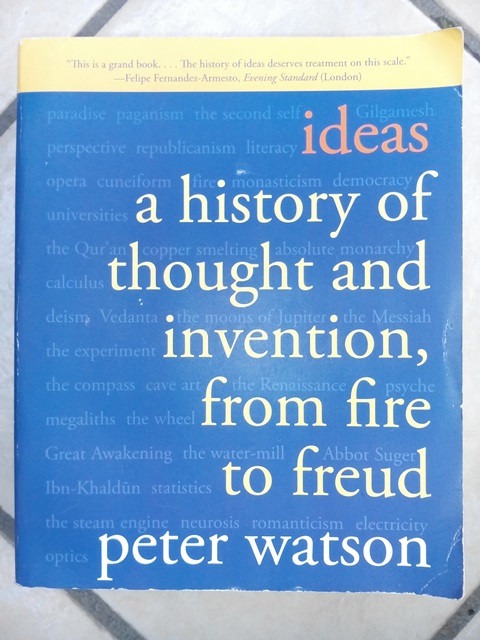
He returned to London to write a column about the art world for the Observer and then at The Sunday Times. He wrote the daily Diary column of the London Times before becoming that paper’s New York correspondent. He has published twelve books of non-fiction and seven no Peter Watson was educated at the universities of Durham, London and Rome, and was awarded scholarships in Italy and the United States.Īfter a stint as Deputy Editor of New Society magazine, he was for four years part of the Sunday Times ‘Insight’ team of investigative journalists. He has published three exposes in the world of art and antiquities and from 1997 to 2007 was a Research Associate at the McDonald Institute for Archaeological Research at the University of Cambridge. After a stint as Deputy Editor of New Society magazine, he was for four years part of the Sunday Times ‘Insight’ team of investigative journalists.

Ideas is a seminal work.Peter Watson was educated at the universities of Durham, London and Rome, and was awarded scholarships in Italy and the United States. Aristotle jostles with Aquinas, Ptolemy with Photius, Kalidasa with Zhu Xi, Beethoven with Strindberg, Jefferson with Freud. In the course of this commanding narrative, Watson reveals the linkages down the ages in the ideas of many apparently disparate philosophers, astronomers, religious leaders, biologists, inventors, poets, jurists, and scores of others. He shows how the discovery of the New World changed forever the way that we think, and why Chinese creativity faded after the Middle Ages.


He explains how ideas about time evolved, how numbers were conceived, how science, medicine, sociology, economics, and capitalism came into being. He describes the invention of writing, early ideas about law, why sacrifice and the soul have proved so enduring in religion. Watson explores the first languages and the first words, the birth of the gods, the origins of art, the profound intellectual consequences of money. Then, in a broad sweep, the book moves forward to consider not the battles and treaties of kings and prime ministers, emperors and generals, but the most important ideas we have evolved, by which we live and which separate us from other animals. The narrative begins nearly two million years ago with the invention of hand-axes and explores how some of our most cherished notions might have originated before humans had language. In this hugely ambitious and stimulating book, Peter Watson describes the history of ideas, from deep antiquity to the present day, leading to a new way of understanding our world and ourselves.


 0 kommentar(er)
0 kommentar(er)
